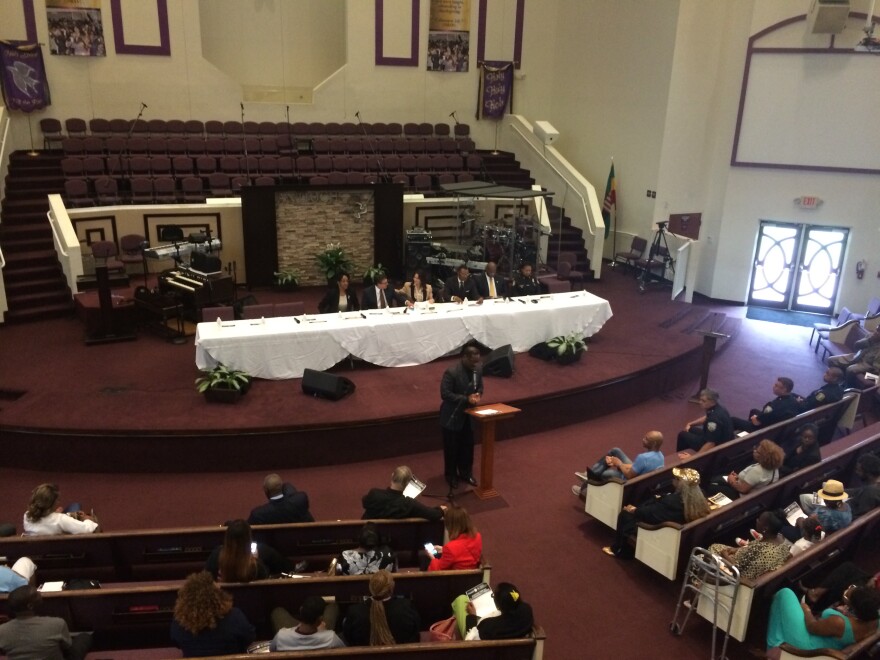Representatives from a host of local, state and federal law enforcement law enforcement agencies gathered in the sanctuary of Antioch Baptist Church in Miami Gardens Tuesday night for the first of a series of community meetings about the aftermath of police shootings in Miami-Dade County.
The Miami-Dade State Attorney’s office, the U.S. Department of Justice, Florida Department of Law Enforcement and several police departments took part in the effort to help explain the process of investigating and eventually prosecuting those cases.
The Miami Gardens event took place in the wake of the deaths of two people at the hands of City of Miami police officers and one at the hands of Miami Gardens police this year. All cases remain open investigations and have brought continued scrutiny of police behavior.
Prompted by national scrutiny in light of civil unrest in Baltimore and Ferguson, Mo., after the police-involved deaths of black men, South Florida police are trying to figure out how to address their image in predominantly minority neighborhoods.
Norman Hemming is with the U.S. Attorney's Office and says that troubled image is even reflected by young kids he tutors.
“I was sitting outside of their school reading with them,” recalls Hemming. “A police car went by with two black officers. These are two young … they’re black like me. And they followed the police car with their fingers shooting, Pow-pow-pow.”
The panelists hope more transparency about the investigation process after shootings will help build trust out of that suspicion and anger, in part by talking about the frustrations people have with the process, including those shared by members of the judicial system after police shootings.
Starting this year, the City of Miami Police handed over investigations of police shootings to the Florida Department of Law enforcement, which also investigates shootings involving the Miami-Dade County Police.
State Attorney Katherine Fernandez Rundle says one of her frustrations is that after those probes, it is very hard to incarcerate cops who should be in jail for shooting people.
The last time a Florida police officer was prosecuted for a shooting was in 1989. The City of Miami cop, William Lozano, was convicted - but the verdict was ultimately overturned. That case also resulted in prosecutors being prohibited from using training materials as evidence. For example, if a cop was trained to disengage from a situation involving a charging car - and didn't follow that instruction when shooting a suspect - that cannot be used against him in court.
“We want to do the right thing,” says Rundle. “We have to follow the law and it’s dependent on the evidence, not what we think. Not what we feel. And It’s heart-breaking, it’s not easy. You look in the eyes of a mother or father and say I don’t really have an answer for you.”
The NAACP and the State Attorney’s office plans to hold more of these open discussions about police relations and shooting investigations in the months to come.


